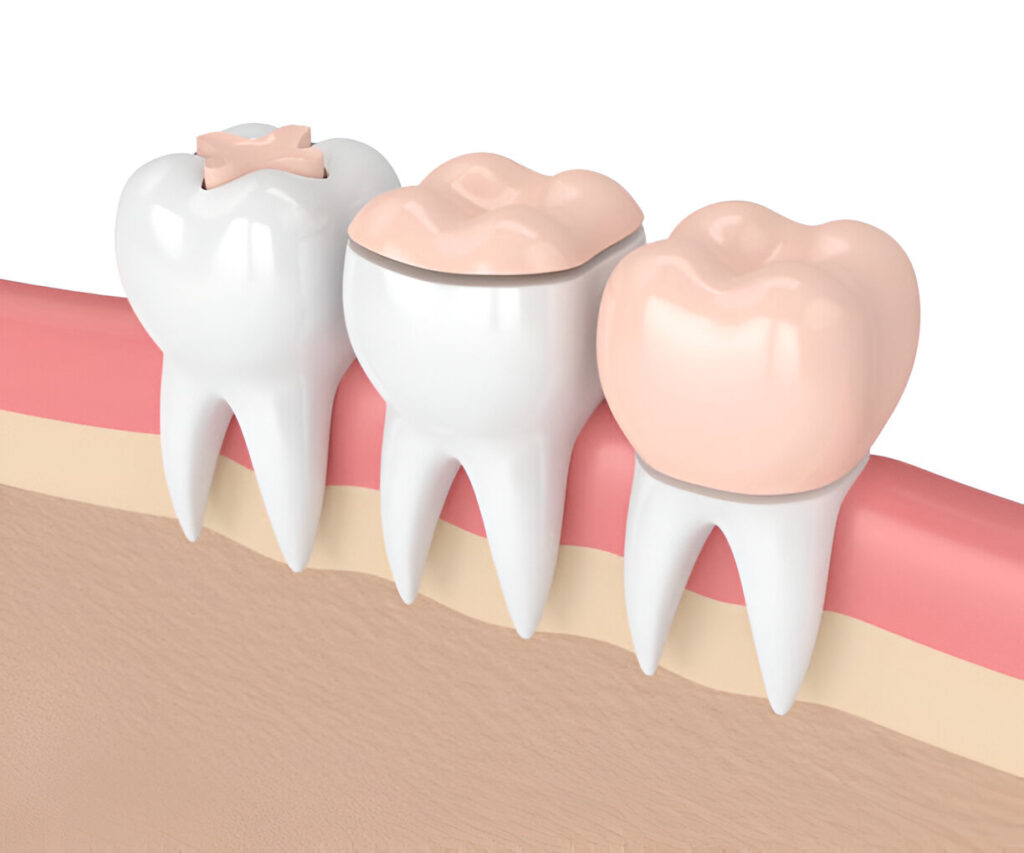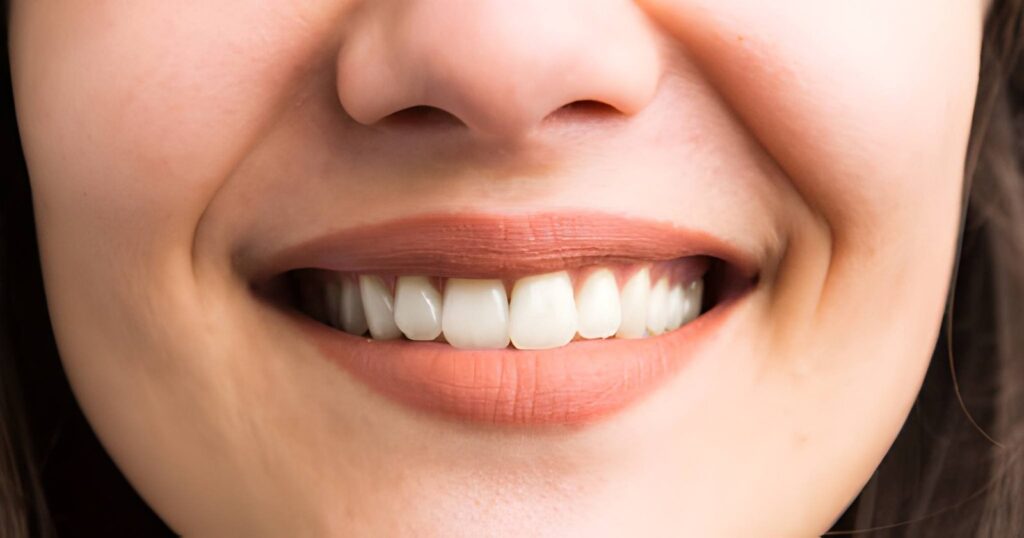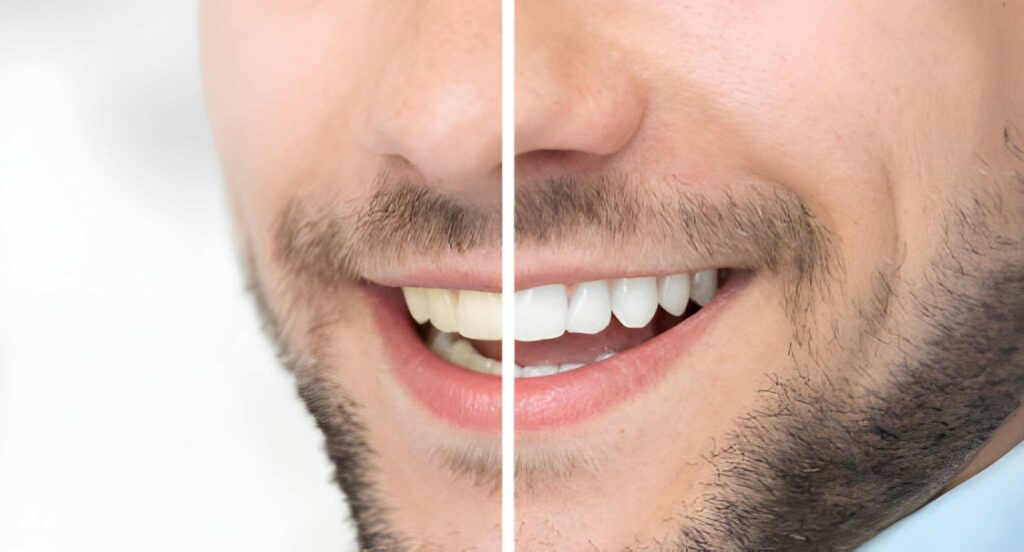Yes, you can get crowns and bridges on the NHS if they are clinically necessary. They are provided under Band 3 treatment. NHS covers functional needs, not cosmetic improvements.
Many patients ask whether crowns and bridges are available through NHS dental care. NHS treatment covers procedures that are necessary to protect and maintain oral health. Crowns and bridges are included, but only when they are required for dental function. Cosmetic improvements alone are not covered.
What Are Dental Crowns?
Crowns & Bridges Treatment in Aberdeen includes placing a dental crown as a protective cap over a damaged or weakened tooth. It helps restore strength, shape, and normal chewing function. Under NHS care, crowns are provided only when clinically necessary to protect oral health.
Crowns may be required after:
- A root canal treatment
- A large filling
- A cracked or broken tooth
- Severe tooth wear
What’s the Difference Between Private and NHS Dentist?
What Are Dental Bridges?
A dental bridge replaces one or more missing teeth. It uses neighbouring teeth for support. It restores chewing ability and prevents surrounding teeth from shifting.
Bridges are offered on the NHS when:
- Missing teeth affect chewing
- Speech is impacted
- Tooth alignment is at risk
- Oral function needs restoring
NHS Eligibility for Crowns and Bridges (Step-by-Step)
- Your dentist examines your teeth and overall oral health.
- They assess whether the treatment is clinically necessary.
- If approved, the treatment is provided under NHS Band 3.
- You receive a written treatment plan with costs explained.
Purely cosmetic requests are not eligible for NHS coverage.
What is the 2-Month Rule for NHS Dentistry?
How Much Do NHS Crowns and Bridges Cost?
Crowns and bridges fall under Band 3 NHS dental treatment.
In England (2024), Band 3 costs £306.80. This includes:
- Examination and diagnosis
- X-rays if required
- Impressions
- Laboratory work
- Fitting of the crown or bridge
The cost remains the same within the same course of treatment.
Why Are Dentists Stopping NHS Treatment?
What Do NHS Crowns and Bridges Look Like?
NHS restorations prioritise durability and function.
- Back teeth often receive metal crowns
- Front teeth may receive white crowns (limited shade options)
- Materials are practical rather than cosmetic
- Advanced aesthetic materials are usually private-only
Limitations of NHS Treatment
- Limited material choices
- Focus on function over appearance
- Possible waiting times
- Availability varies by location
Despite limitations, NHS treatment provides reliable and affordable care.
Can You Mix NHS and Private Treatment?
Yes. You can combine NHS and private care within a treatment plan.
For example:
- Receive a medically necessary crown under the NHS
- Choose a cosmetic upgrade privately
Your dentist must clearly explain costs and provide written documentation.
Final Thoughts
Crowns and bridges are available on the NHS when they are necessary to maintain oral health. They fall under Band 3 charges and focus on restoring function rather than improving appearance. If aesthetics are your main concern, private options may be discussed. Always speak to your dentist to understand your eligibility.
Book Your Crowns & Bridges Consultation in Aberdeen
If you are considering Crowns & Bridges Treatment in Aberdeen, the team at Holburn Dental & Implant Centre is here to support you. We provide clear advice on both NHS and private options, ensuring you fully understand your treatment plan, costs, and expected results. Our experienced clinicians will assess your oral health carefully and recommend the most suitable solution to restore strength, function, and confidence in your smile.
Contact Holburn Dental & Implant Centre today to arrange your consultation and take the next step towards protecting your dental health.
FAQs (People Also Ask)
Can I get a crown on the NHS for cosmetic reasons?
No. NHS crowns are only provided when clinically necessary.
Are bridges always covered by the NHS?
Only if the missing tooth affects function, speech, or alignment.
Can I choose the material of my NHS crown?
Choice is limited. High-end cosmetic materials are usually private options.
How long does NHS crown treatment take?
It typically takes several weeks from impression to fitting.
Is NHS dental treatment cheaper than private?
Yes. NHS treatment has fixed band pricing, making it more affordable.
Author
Reviewed by: Clinical Team at Holburn Dental & Implant Centre
This content is written for patient education and general guidance.
Last Updated
18 February 2026




